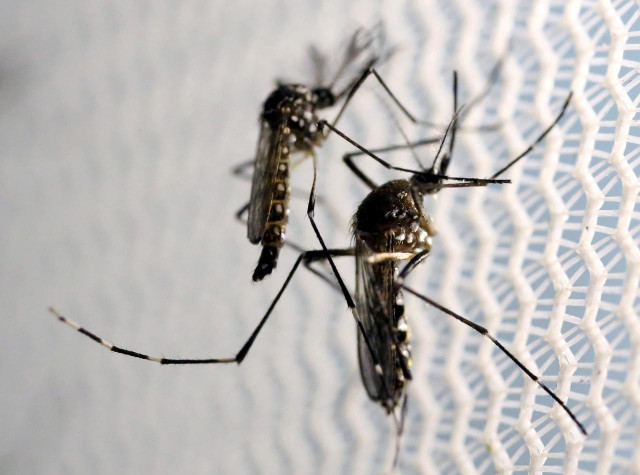Dengue control falls under scrutiny
Government invests in several combative strategies including utilization of specific aquatic creatures, plants

With dengue assuming the status of a perennial epidemic, the government has invested in a number of combative strategies including the utilization of specific aquatic creatures and plants for eliminating the mosquitos’ larvae however, critics are of the opinion that the measures have not yielded satisfactory results.
Despite the Department of Fisheries Punjab claiming to have released approximately 2.3 million tilapia fish into water bodies, ponds and lakes every year, there is no authentic data proving the efficacy of these fish in controlling the growth of dengue mosquitoes. Instead, much to the dismay of the dengue control teams, the usage of aquatic creatures for eliminating dengue larvae from water has not curbed the growing number of dengue cases which arise each year.
As per statistics gathered by the Health Department Punjab, there was a 37 per cent increase in the dengue positivity rate during the past two years, with the total number of reported cases reaching 356,561 by just September of the current year, in comparison to 259,344 cases reported from the previous year hence proving that the governments measures for dengue control have been largely inadequate.
“Our job is only to release the baby tilapia fish into water bodies after checking the potential of hydrogen (pH) levels of the water. Whether or not they yield any positive results is beyond our purview and is the responsibility of the Punjab government,” said a spokesman of the Department of Fisheries Punjab, who added that the usage of aquatic creatures and plants for dengue control was a biological type of dengue control amidst many other options that were available.
Read Dengue on the decline in Punjab
“There is currently no scientific evidence that supports the usage of aquatic creatures and plantations for combatting dengue. Among the many different ways for controlling dengue, the most updated ones include the widespread usage of chemical repellants, including sprays, lotions, candles, coils and vaporizers, which disrupt the mosquitoes’ sense of smell, taste or both,” said Dr Khalid Pervaiz, a medical expert, who added that some people were also taking vitamin B and garlic food supplements for preventing dengue.
Disagreeing with Dr Pervaiz are experts who argue that certain plants can play an important role in combatting dengue mosquitoes. In their opinion, mosquitoes and other fungi are repelled away by the aroma emanating from plants like neem, mint, marigold, tulsi and lemongrass.
Speaking to The Express Tribune on the matter, Dr Muhammad Hafeezur Rehman, Chairman of the Department of Fisheries and Ecoculture said, “It has been scientifically proven that different types of fish, including tilapia, eat mosquitoes, their larvae and other small insects as food. We employ three different methods to destroy the dengue mosquito and its larvae, including mechanical control, chemical control and biological control.”
Published in The Express Tribune, December 22nd, 2023.



















COMMENTS
Comments are moderated and generally will be posted if they are on-topic and not abusive.
For more information, please see our Comments FAQ